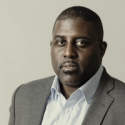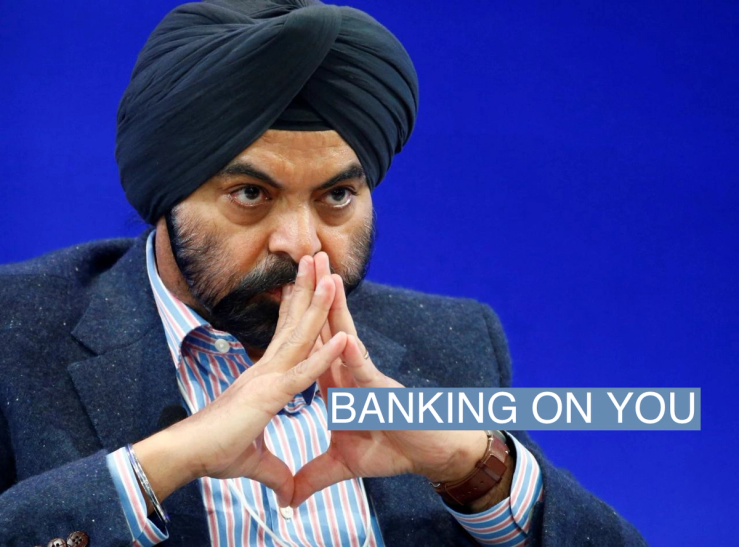The News
Africa-watchers have mixed feelings about the White House’s nomination of Ajay Banga to lead the World Bank.
Banga, a former CEO of Mastercard, started an Africa trip on Monday (March 6) visiting Côte d’Ivoire and Kenya, as part of a “global listening tour”.
The Indian-American executive is an atypical choice, coming from the private sector rather than the development finance world. Some consider his nomination to be a positive move but others see existential challenges facing not just the bank, but the entire Bretton Woods finance system, which may prove difficult for a relative newcomer to this development sector.
Know More
Banga, who spent over a decade at Citigroup before joining Mastercard, has long been a fixture at major events like the World Economic Forum. “He’s very much the Davos type of globalist,” said Bright Simons, an analyst with Imani Africa, a think tank, based in Accra, Ghana. Simons, who has spent time with Banga at such conferences, said Banga seemed to be “the right guy” for the job. “He doesn’t have the ideological hangups of others.” Michael Schlein, CEO of global financial inclusion non-profit Accion, first worked with at Citigroup before partnering with him at Mastercard. He described Banga as an “inspired choice.”
But some are not so sure given the challenges the bank faces. “We don’t know what he believes in with development finance because he has no obvious background in the space and hasn’t operated in the public sector,” said W. Gyude Moore, a senior fellow at the Washington D.C. Center for Global Development.
Yinka’s view
Given the World Bank’s stated goals of ending extreme poverty and boosting shared prosperity, Africans are a core constituency of the institution. This has become even more pressing with economic shocks and supply chain disruptions of the global pandemic and the war in Ukraine. Both have effectively slowed or even reversed some of the economic progress made by African countries over the last two decades.
But the institution potentially faces even bigger challenges. Its longstanding attempts to reform and move more quickly with its partner countries have had limited success and many are losing patience with a lender that struggles to disburse funds even after it has reached agreements with African countries. “A lot of African governments complain about the slowness of the bank’s deployments,” said Moore who was previously a public works minister in Liberia. “Up to 80% of Africa’s infrastructure projects fail at the feasibility stage — there should be an overcorrection towards Africa.”
Simons, who has been involved in advising on reform efforts at the bank’s operations in West Africa, said many of the challenges are entrenched in its system: “Even when they commit to a project they can’t disburse the money.” Part of the problem is that the World Bank’s high standards of due diligence often run into obstacles with countries that don’t have similarly rigorous systems in place, said Simons.
Development Reimagined’s founder Hannah Ryder wrote last week that Banga should reach out to African Development Bank chief Akin Adesina to better understand how to work in what will be its most important region for making the kind of impact it actually needs, particularly with infrastructure.
The departure of outgoing World Bank president David Malpass was partly linked to his skepticism about the impact of climate change, so it’s perhaps not surprising that part of the bank’s reforms have involved integrating a climate focus into its priorities. But that hasn’t been universally welcomed particularly on the continent where there’s a severe shortage of infrastructure alongside high unemployment. Many see the two as more critical to tackling extreme poverty than focusing on climate change.
Last month South Africa’s finance minister Enoch Godongwana called on the World Bank to be “careful” about not shifting its focus from poverty reduction as its focus widens to include climate change.
Room for Disagreement
It almost doesn’t matter who the new boss of the World Bank is if the entire Bretton Woods system under which it operates faces challenges from China, says Eric Olander, editor of the China Global South Project. “Whoever the new World Bank president is faces competing irrevocable pressures,” he said.
China is in a standoff with the World Bank over demands that it take a “haircut” on the restructuring of debt owed to it by countries including Zambia and Sri Lanka. The Chinese government has demanded that multilateral banks led by the World Bank also be willing to take a hit. But, under the current system, multilateral banks like the World Bank are protected from write downs to help maintain their AAA ratings. The idea is that this allows the World Bank to access financing cheaply and in turn lend to its developing country members. Debtor countries like Zambia are stuck in limbo while this plays out.
“China really wants to take the Bretton Woods institutions like the World Bank and the IMF down a notch or two,” says Olander. “Nothing is off limits.”
The View From Zambia
Zambia has become a byword for “debt crisis” after it became the first country to default on a debt payment in the pandemic era back in November 2020. Since then, the 18-month old government of President Hakainde Hichilema has been in careful negotiations to restructure its debt alongside its biggest bilateral creditor China under the so-called G20 common framework. But that hasn’t happened despite calls from all sides. “Zambia is an interesting test case on the perils of borrowing,” says Grieve Chelwa, an economist in Lusaka, Zambia’s capital city. “I’m very skeptical that the G20 framework will work for us.”
“Everybody expected it would all be resolved quickly,” says Chelwa. “Everyone is frustrated and losing patience on the streets here.”
NOTABLE
- For his newsletter, Georgetown University’s Ken Opalo wrote on what he describes as “the World Bank African countries need”. He makes the case for bigger and transformative ideas, faster project implementation, better policy research and improved data collection.


